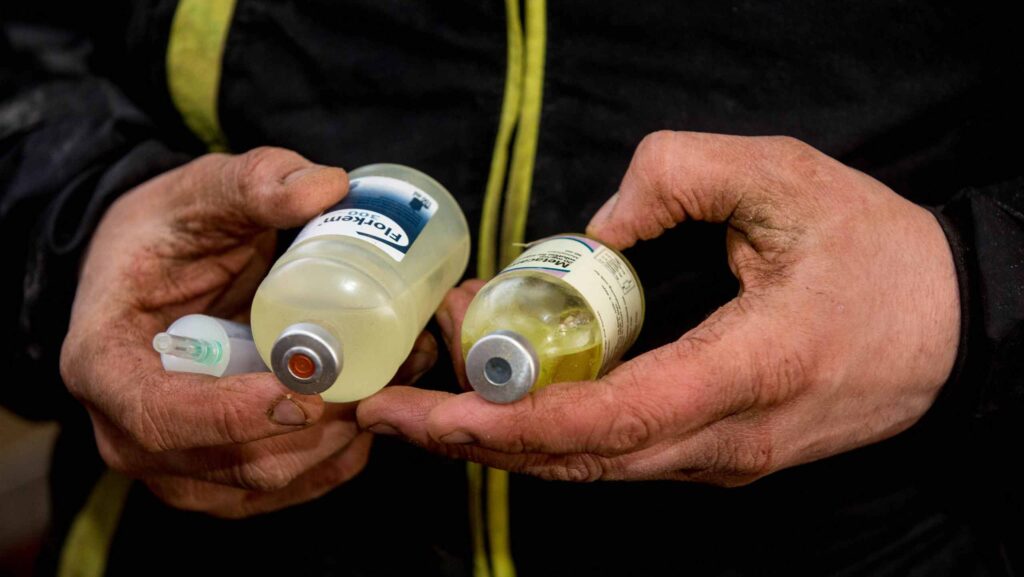NI farmers face severe lack of vet products, inquiry finds
 © Tim Scrivener
© Tim Scrivener An inquiry by the House of Lords has found that about a third of veterinary medicines used in Northern Ireland could be discontinued, creating critical challenges for farm businesses and disease control.
The European Affairs sub-committee on the Windsor framework has written to Northern Ireland minister Steve Baker calling for urgent action.
It has raised serious concerns that the loss of veterinary medicines could have a big impact on farming, veterinary practices, and pets in Northern Ireland, and on public health across the island of Ireland.
See also: MPs fear border weaknesses as physical food checks loom
Unlike human medicines, veterinary medicines were not covered by the Windsor Framework and will therefore face new EU rules once the standstill period concludes at the end of 2025, unless alternative measures are introduced.
Lord Jay of Ewelme, chair of the Windsor framework sub-committee, said: “This is an issue of vital importance which affects everyone, regardless of political hue.
“The government has spoken of the need to make ‘rapid progress’, and we are stressing the need for a positive and swift outcome within what is a tight timescale, complicated by upcoming elections in the EU and UK.”
Concerns were raised by the inquiry about food supply chains and how it might affect reputational risk and market access, with examples such as if laying hens do not receive the salmonella vaccine, they would not be able to supply the GB market.
About 30% of milk produced in Northern Ireland is taken to the republic, however under EU rules this may no longer be possible.
Industry concerns
Ulster Farmers’ Union (UFU) parliamentary officer Alexander Kinnear gave evidence to the inquiry and told Farmers Weekly that the House of Lords committee has done a lot of good work identifying problems and the scale of them.
Mr Kinnear said: “We are alarmed at what they have concluded, but we’re not surprised because this has been a situation that has being bubbling for quite some time.
“The background to it is that Europe is saying that we have to comply with the full suite of EU regulations regarding veterinary medicine products for importation and regulation.
“We’re alarmed on a host of fronts in terms of the scale of this problem. It’s reported that we’re facing a situation of up to 51% of the veterinary medicine portfolio for both farmed and companion animals could either be discontinued or changed in pack sizes.”
Quantities
Mr Kinnear said this could result in small farmers being forced to buy excessive quantities of medicines that they do not need.
He added: “There’s a number of suggestions that are within the report, such as the grandfather rule, where products that we were using right up until we left the European Union would be granted access because nothing really has changed.
“On a wider front, we really need to examine the UK and EU rules regarding veterinary medicines, aligning and both recognising each other’s standards. We want to maintain our access to the single market and access to Great Britain, but we also need to ensure that our veterinary medicine portfolio isn’t disrupted in any way.”
